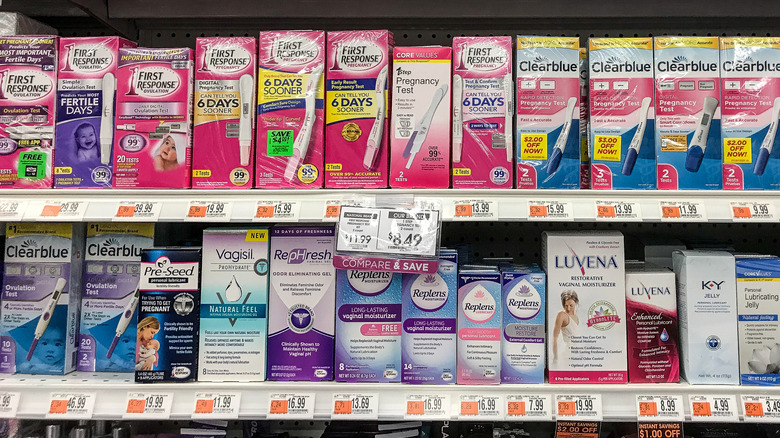Is Vagisil Actually Good For You?
Despite the hype and constant commercials, Vagisil and other vaginal washes are unnecessary and can actually do more harm than good (via Self). Although Vagisil claims to clean the vagina and improve or mask its natural odor, the vagina is a self-cleaning organ. While you can certainly wash the external area with mild soap and water, using a scented cleanser inside the vagina could disrupt its natural pH balance, which can cause irritation and itching and may even lead to a yeast infection.
"The hazard of [cleaning your vagina] is that you can upset the balance of power between good-guy and bad-guy bacteria," Dr. Mary Jane Minkin, a clinical professor of obstetrics, gynecology, and reproductive sciences at Yale Medical School, told Self. "Washing can deplete the Lactobacilli bacteria that will keep your vagina at an acidic pH and prevent infections." An imbalance of bacteria in the vagina can also lead to bacteria vaginosis, a common vaginal condition that can cause burning during urination, gray, white, or green discharge, vaginal itching, and a "fishy" vaginal odor.
Vagisil can worsen your condition
As it happens, Vagisil and other similar products can actually cause many of the problems they claim to be able to cure (via The New York Times). If you're already experiencing redness, irritation, itching, or any other symptoms associated with yeast infections or bacterial vaginosis, using Vagisil will only worsen or aggravate your condition. While these products may be affordable and easy to access, they will do very little to treat the underlying problem. "It doesn't wash away the bacteria that causes an inflammation or smell," Dr. Heather Irobunda, an obstetrician and gynecologist at NYC Health + Hospitals, told the New York Times. "If the area is already inflamed, using these products will irritate that area even more." That's why it's important to skip the over-the-counter products and contact your doctor to make an appointment. Leaving vaginal infections untreated can lead to further complications and increase the risk of sexually transmitted infections and urinary tract infections.


